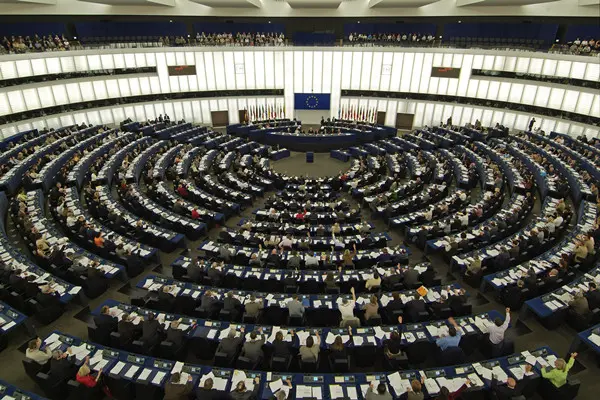In a resolution adopted on Tuesday, the European Parliament (EP), meeting for its plenary session in Strasbourg, called for the setting up of a "European Defence Union."
Members of European Parliament (MEPs) suggested devoting 2 percent of GDP to defence and to create a European headquarters to intensify cooperation in order to confront security threats, notably from terrorism.
"Our union is not equipped to confront major defence challenges. For 30 years, the majority of member states reduce their defence budgets, which leads to smaller armed forces, the cooperation between member states is occasional and Europe continues to support itself largely on the capacities of NATO and on American solidarity," declared the rapporteur Urmas Paet, during the Monday debate which preceded Tuesday's vote.
"The impetus toward a European defense policy has come," affirmed the Estonian MEP.
Last September, European Commission President Jean-Claude Juncker, in his annual state of the union address to the EP in Strasbourg, declared: "Europe can no longer content itself to be a soft power," and "a Europe which protects is a Europe which defends itself," before advocating the creation of a European defense headquarters to put military resources in common.
The resurgence of "hot" conflicts on the frontiers of the European union (EU) and signs of degradation in the security situation at its heart have brought back to the foreground the question of a common defence which Europeans have discussed for decades.
Indeed, the idea of a "European Defence Union" did not arise yesterday. But the EU still does not have a shared army at its disposal, as it was planned in the draft European Defence Community rejected by France in 1954.
"The security situation in and around Europe has significantly worsened during these last years, due to challenges such as terrorism, hybrid threats, or cyber and energy insecurity that no single country is able to face alone," explains the resolution adopted Tuesday by 369 votes in favor, 255 against and 70 abstentions.
"Solidarity and resilience require the EU to stand and to act together and systematically," the text insists.
MEPs plead that "the EU react more rapidly and more firmly toward real threats which require European armed forces to collaborate more closely."
According to them, duplication, overcapacity and hindrances imposed on military acquisitions would lead to annual losses of 26.4 billion euros (about 28 billion U.S. dollars).
The resolution also asks the European Council to lead the creation of a "common defence policy for the Union and to provide supplementary financial resources in order to assure its set up."
It suggests creating an EU headquarters for planning and commanding operations, in addition to crisis management.
Member states of the EU should dedicate themselves to 2 percent GDP spending on defence and to create "multinational forces at the heart of a permanent structured cooperation by putting these forces at the disposal of the common security and defence policy," added the text.
MEPs ask as well that the European defence market be rendered "equitable, accessible and transparent," and that the EU invest in research projects in the defence sector at a rate of "at least 90 million euros over the next three years."
They evoked a distinct European research program for defence with an annual budget of 500 million euros.
The EP underlined as well, in its resolution, that the EU and NATO should cooperate more, particularly in the East and in the South, but that the EU should also be read to act in an autonomous manner in the case where NATO would not be ready to take the initiative.
On Wednesday, MEPs will also vote on a separate resolution on the Common Security and Defence Policy.
The draft text proposes to "radically revise the common security and defence policy and to launch a training operation in Iraq in order to support member states involved in the coalition against the Islamic State."
(APD)
 简体中文
简体中文





